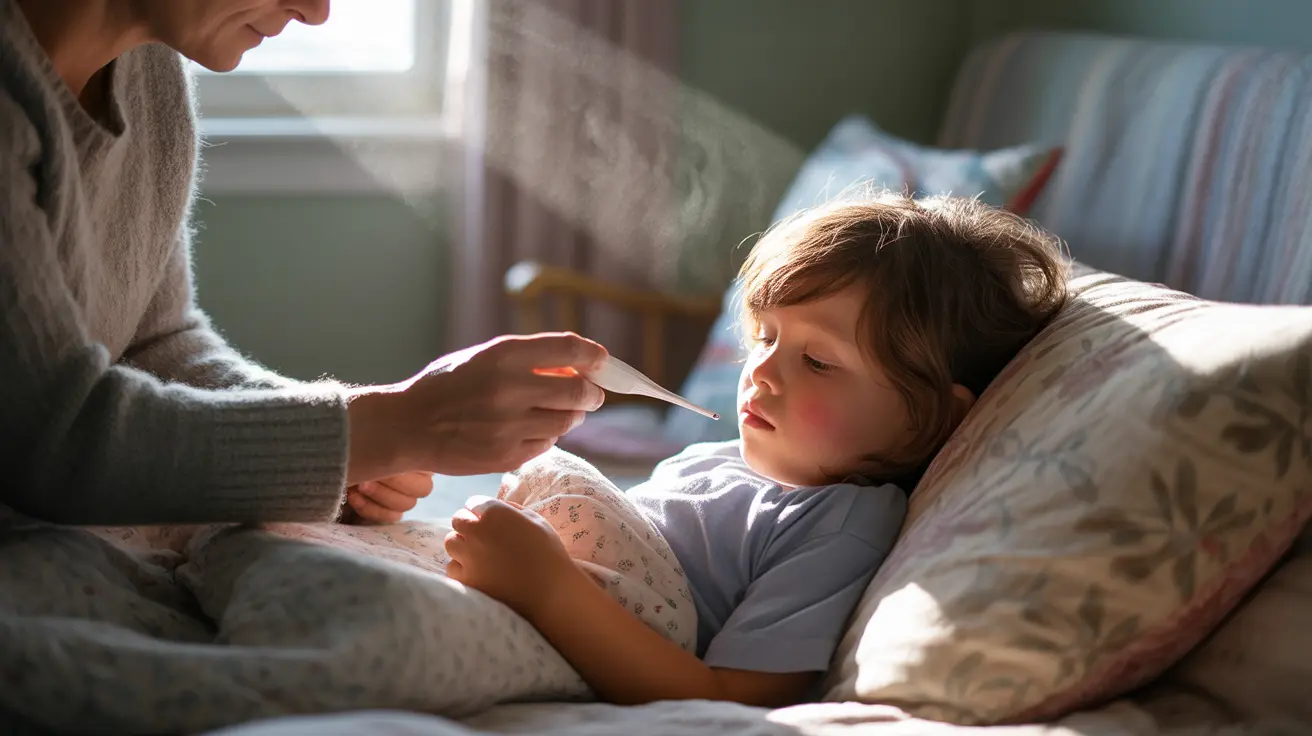When your child experiences dizziness and fever together, it can be particularly concerning for parents. These symptoms often indicate an underlying illness that requires careful attention and monitoring. Understanding how to recognize, manage, and know when to seek medical help is crucial for your child's well-being.
This comprehensive guide will help you navigate through the challenges of managing these symptoms in children, including when to be concerned and what steps to take for proper care.
Understanding Dizziness and Fever in Children
Dizziness in children can manifest as feeling lightheaded, unsteady, or experiencing a spinning sensation. When combined with fever, these symptoms might indicate various conditions, from minor viral infections to more serious illnesses. Fever is typically defined as a temperature of 100.4°F (38°C) or higher.
Common Causes of Dizziness and Fever
Several conditions can trigger both dizziness and fever in children:
- Viral infections
- Inner ear infections
- Dehydration
- Flu
- Bacterial infections
- Heat-related illness
Managing Fever and Dizziness at Home
Proper home care can help alleviate your child's symptoms and promote recovery. Here are essential management strategies:
Temperature Control
Monitor your child's temperature regularly and help reduce fever through these methods:
- Use appropriate fever-reducing medications as advised by your healthcare provider
- Ensure proper hydration with water and clear fluids
- Dress your child in lightweight clothing
- Maintain a comfortable room temperature
Preventing Dehydration
Dehydration can worsen both dizziness and fever. Encourage regular fluid intake through:
- Small, frequent sips of water
- Pediatric electrolyte solutions
- Ice pops or frozen treats
- Clear broths
When to Seek Medical Attention
Certain symptoms require immediate medical evaluation:
- Fever above 104°F (40°C)
- Severe headache or neck stiffness
- Persistent vomiting
- Signs of dehydration
- Difficulty walking or balance problems
- Unusual drowsiness or confusion
Prevention Strategies
While not all cases of dizziness and fever can be prevented, these measures can help reduce risk:
- Regular handwashing
- Proper nutrition and hydration
- Adequate rest
- Up-to-date vaccinations
- Regular physical check-ups
Frequently Asked Questions
What are the differences between flu and a cold in children, and how do I know if it's serious?
Flu typically presents with sudden onset of fever, body aches, and fatigue, while colds usually start gradually with congestion and mild symptoms. The flu is more serious when accompanied by high fever, severe body aches, and extreme fatigue. Seek medical attention if symptoms are severe or worsen rapidly.
How can I manage dizziness and fever in a child, and when should I seek medical attention?
Manage symptoms by ensuring rest, proper hydration, and appropriate fever-reducing medications. Seek immediate medical attention if your child has a very high fever, severe dizziness affecting balance, signs of dehydration, or appears unusually lethargic.
What are the most common complications of the flu in children, and how can they be prevented?
Common complications include ear infections, pneumonia, and sinus infections. Prevention involves annual flu vaccination, good hygiene practices, and prompt treatment when symptoms first appear.
Is it safe to give my child over-the-counter medications for flu symptoms, or should I consult a doctor?
While certain OTC medications are safe for children, always consult a healthcare provider first to ensure proper dosing based on your child's age and weight. Never give aspirin to children with fever due to risk of Reye's syndrome.
What are the signs that my child needs immediate medical attention if they have the flu, and what are the benefits of antiviral medications?
Seek immediate care for rapid breathing, bluish skin color, severe vomiting, or not waking up/interacting. Antiviral medications can reduce symptom severity and duration when started within 48 hours of symptom onset.




